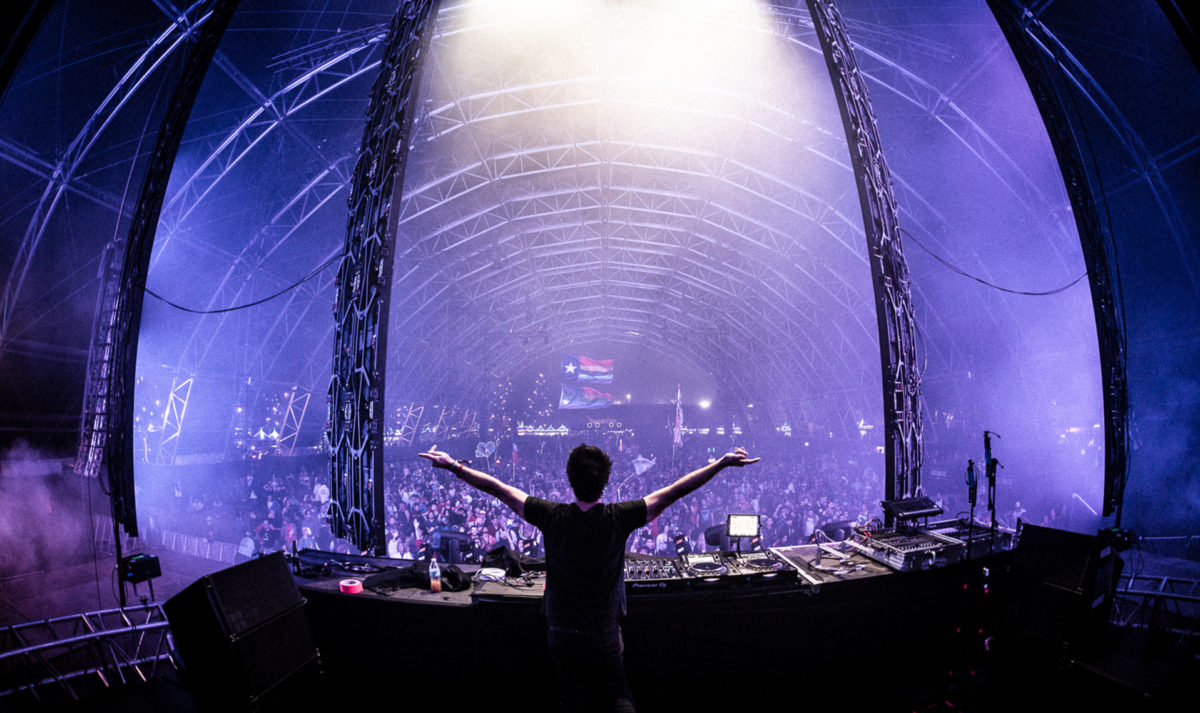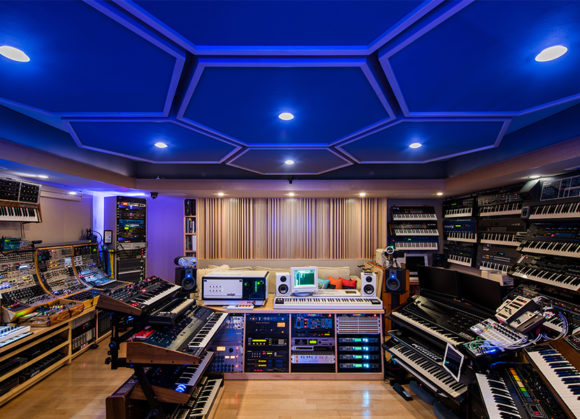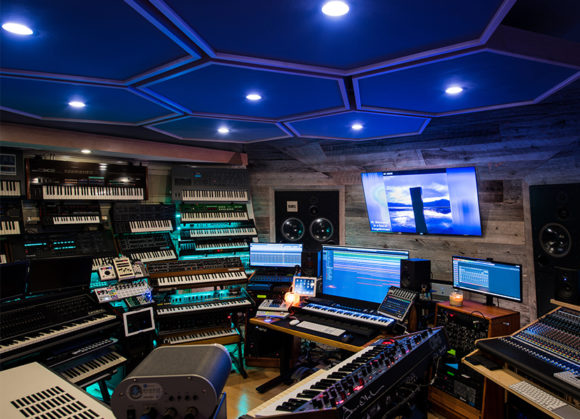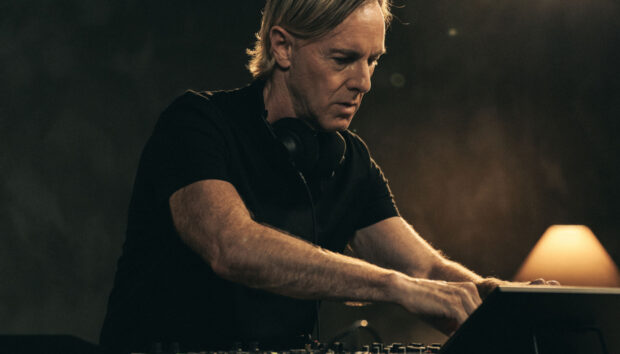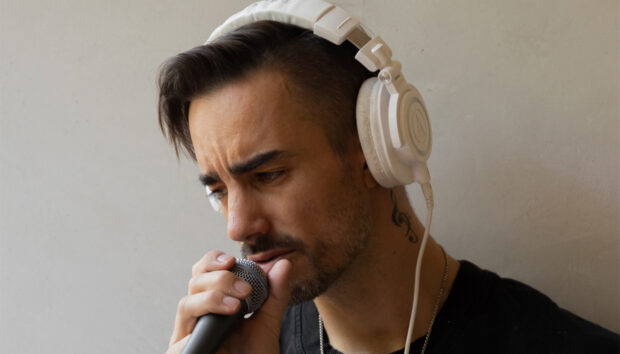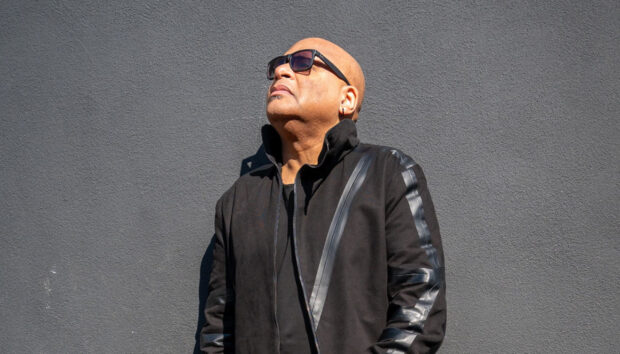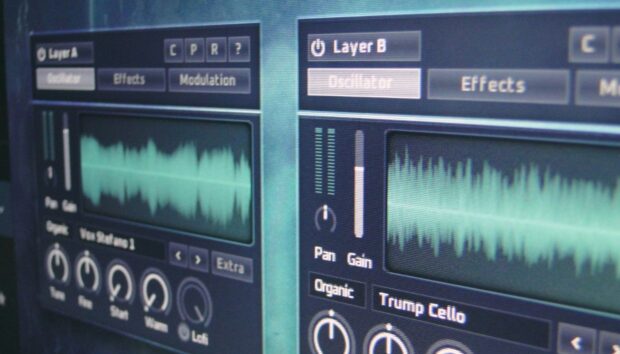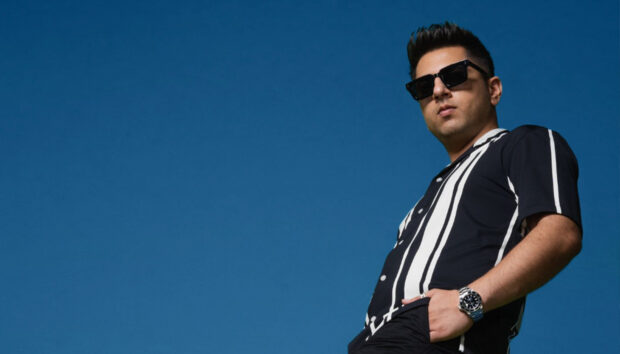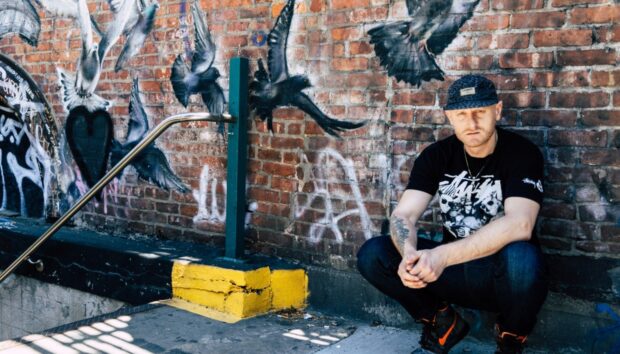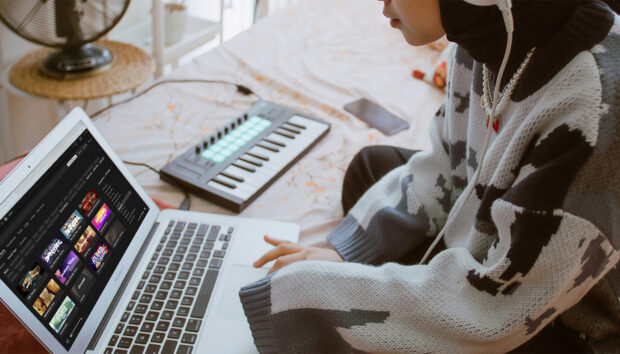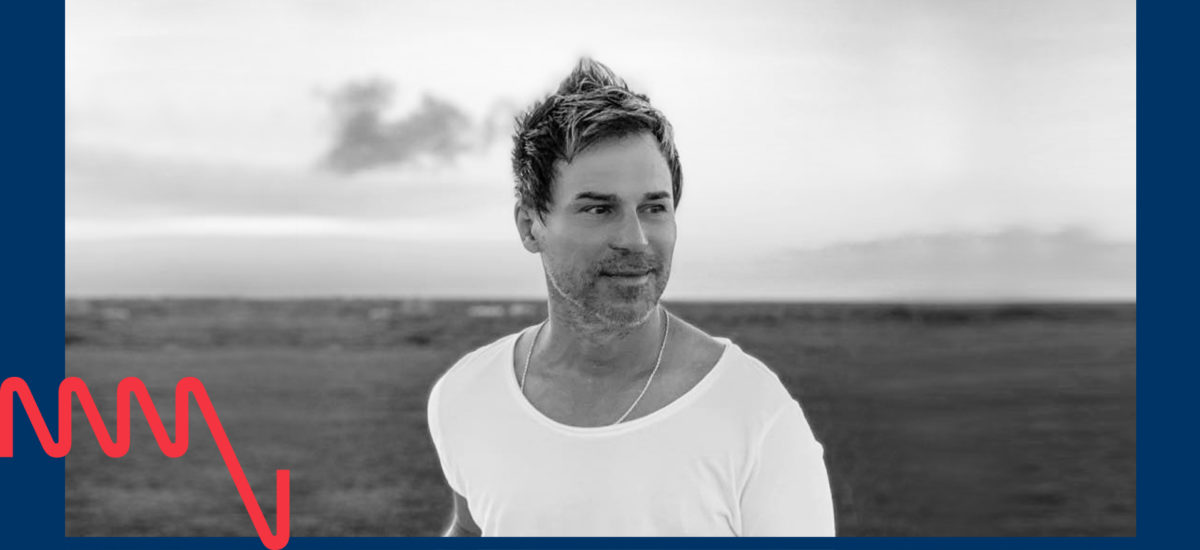
BT’s era-spanning career is as epic as the vastest, mightiest drop in any of his genre-shifting tunes. Ever since the mid-nineties when those two letters became synonymous with the sun-kissed euphoria of UK progressive house and trance, where classics like the Tori Amos vocal-led Blue Skies graced both the charts and the sunrises of Ibiza, the Maryland born producer, multi-instrumentalist and DJ has never stop evolving.
Brian Transeau is a pioneer behind both EDM and the stutter edit, that instantly recognisable chopped glitch effect he later helped develop it into the Izotope plug-in. Many times you’ll have heard his scores in pictures ranging from The Fast And The Furious to the Charlize Theron’s Oscar winner, Monster. In fact, it’s hard to imagine there was ever a time when BT wasn’t behind a console of some kind, pushing buttons, chopping samples, reaching out to dance floors across the world. Along the way, he’s hatched Grammy-nominated solo albums and found time to collaborate in some form or other with everyone from Bowie and The Roots to Madonna and NYSYC. And right now, he wants to share his passion with beatmakers across the world.
NI spoke with him one afternoon about his involvement in the Community Drive. Joining alongside fourteen other genre-defining contemporary artists, from Peaches to Sia, Laurel Halo to Miquela who’ve all donated loops, presets and samples. The Community Drive is there to raise money directly to a range of charities supporting artists whose livelihoods are being hit by through the consequences of Covid-19. Check out all the artists involved and download the pack for free here, then – if you’re able – please consider donating to the worthy organizations we’re supporting with this drive.
Zapping into BT’s PRISM, SKANNER XT, and MONARK presets are a treasure trove of sounds that fly across the history of House music. In person, BT, although almost fifty, is bright, bouncy and impossibly ageless. If superstar DJs are meant to be aloof and mysterious, this guy certainly didn’t get the memo.
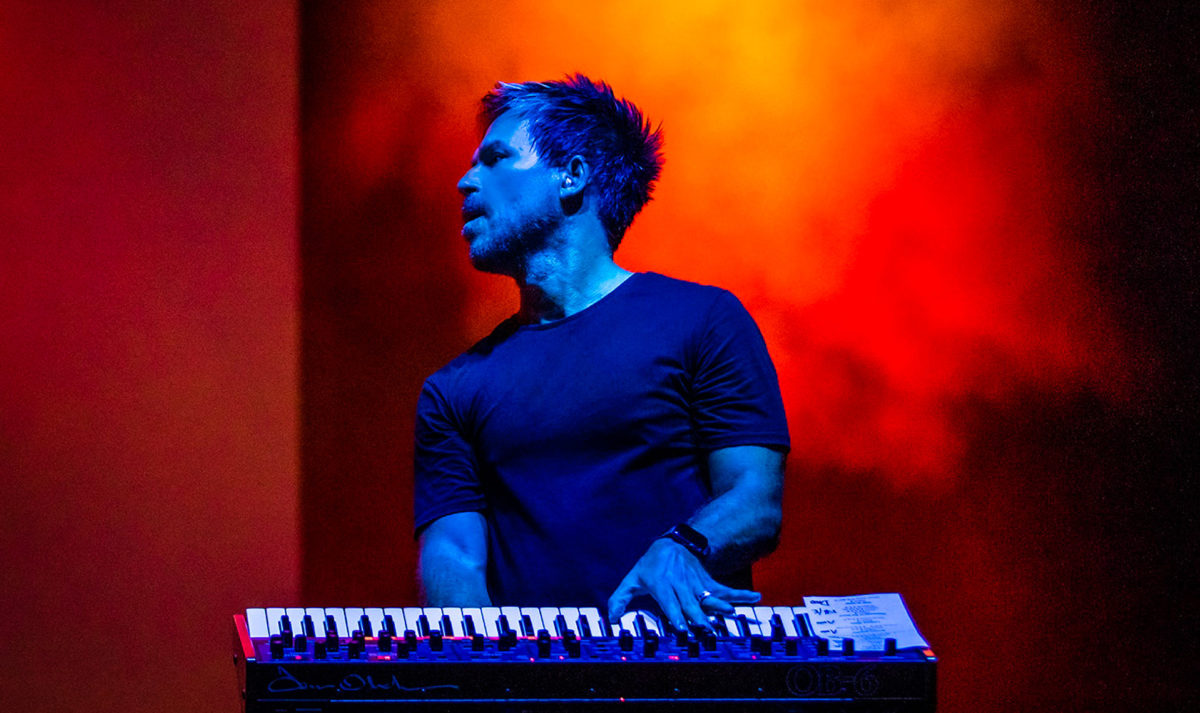
Where are you in the world right now?
I’m on the East coast. I’ve been working hard on a lot of projects although we do miss California quite a bit right now and our friends there, but thankfully everybody’s safe. So we’re happy.
For someone used to being around a lot of people and performing, how have the last few months been in terms of not being able to do that?
That’s a great question and it’s actually a pretty funny answer. I’ve gotten so much feedback from fans that want to understand two things. One is: ‘How do you write so much music and do so many different projects?’ And the other is ‘Can you please show me some of these crazy techniques that you do to make all these wild sounds?’ So a bucket list project for me, and it’s a project of service too, is to make a master course that is of all my tools and techniques and methodologies for making music and sound design. And a lot of it is about living an actualised creative life and everything that goes into making music that doesn’t happen in the studio. 80% of living a fulfilling creative life is all the stuff outside the studio. So I’m constantly on about how you eat, being hydrated, mindfulness practice all these kinds of things. They’re actually an incredibly important part of my own personal creative discipline and make that time I have in the studio more effective. But also, I am a textbook, like off the charts as far as you can go introvert, which is actually shockingly common for people that love to be in the studio. And in fact, we could digress into a very colourful and interesting conversation about how many people in the electronic music space have similar personalities to mine, that by circumstance are forced into these very social environments where they’re actually burning and uncomfortable and they have to learn the discipline for taking space for themselves. So weirdly for me, this period has been this amazing thing in some ways, because I’ve had so much time to recharge and be in the studio and actualise all these ideas where normally I’m on airplanes and performing. Not to say that I don’t love those things too but the part of this that has been a treat has been this ability to just have some quiet time, be reflective, be creative, these things that I crave is an introvert.
There’s a lot of mystique about DJs and producers. People often think of them leading very glamorous lives and being very flash, not necessarily as introverts.
You can draw a line in the sand between the introverts and extroverts. You really can and once you start thinking of it in that way, you can just tell it a million miles off. I have friends that are very, very well known electronic music DJ types that are really struggling right now financially, it’s part of why I was so proud of being involved in the Native Instruments Community Drive. And the double whammy is the ones struggling financially as well as being textbook extroverts, they’re missing the social interaction so much. I have four or five friends that are really, really depressed, we’re checking in with on a daily basis because their whole point of connection creatively is in that social interaction and they’re really struggling with just being not connected to people.
So you’ve spent the last few months preparing your knowledge and techniques together into a way you can share them with people. There’s this classic view that artists want to be very private and secretive about their techniques like it’s a dark art. You don’t share that view?
I love sharing information. Plug-in development is a perfect example of this. Stutter Edit started with me as a tape op sitting on a dusty floor in rural Maryland at a studio with a razor blade, a grease pencil and a little metal block cutting tape, and having this crazy thought like, ‘okay, if it’s 122 beats per minute and it’s 15 inches per second, then that would mean…’ I’ve been playing around with these ideas literally since I was a teenager. And then I finally got the courage up to get together with a couple guys and say, ‘Hey, let’s have a go at making an application’. And then finally doing it, selling it to Isotope. And then it goes out into the world. So many of my friends said to me ‘Are you not terrified? You’re giving people the sound of what you do.’ And I’m like ‘no I’m not, they’re going to use it differently.’ I feel like the more precious you get about these ideas, the more inhibits your own growth too because by sharing them in a way that other people can implement it keeps you growing.
Did you have a methodology to how you went about creating the sounds for the Community Pack?
I loved doing the sound design from scratch. I’m one of these weird guys that when I get a synth, the first thing I do is wipe all the presets. It makes all my friends crazy, they can’t actually believe that I do it, but it helps me to learn the instrument. And what was fun about this project was there were a couple Reaktor ensembles that I hadn’t really played with yet. I really tried to make sounds that showcase a different flavour of what’s possible with that instrument and would provoke someone to go ‘Oh, wow that’s kind of interesting. What’s going on under there? How’s that undulated?’ and to learn it themselves.
Plus you might hear a piece of music in two years time and go ‘hang on a minute, I think that’s got one of my sounds in it…’
Oh, this happens all the time actually. I love it when I hear something that I worked on and you can tell that someone did something of their own with it. That happens a lot with Stutter Edit. I want to know what that is, I’ll send an Instagram direct message ‘Hey man, I heard you used such and such, it sounded so sick, would you mind sharing those patches?’ So yeah, it’s a fun part of it for sure.
Do you think there’s anything positive in a creative way that can come out of this current global situation?
I think our role as artists is more important than ever, we’re not first-line responders helping people with coronavirus or trying to cure the illness, our job as artists is to create a feeling of inclusiveness and positivity to give people a respite from what they’re feeling in any given moment, even if it’s just for three minutes. I see our role as more important than ever to just being positive and spreading goodness through the media that we make.
